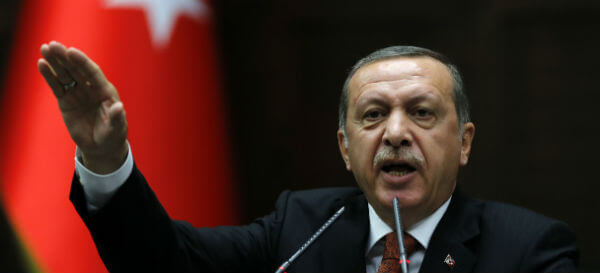
The New York Times reports: Last September, Chancellor Angela Merkel was widely seen as an idealist, charitably welcoming hundreds of thousands of refugees to Germany in the face of stiff opposition at home and from European allies. But the influx swiftly became too much to handle.
Fast forward, and this year it is a rather different Angela Merkel at the helm, with an approach toughened by experience. This is the pragmatic Angela Merkel, who entered a calculated deal with an increasingly authoritarian President Recep Tayyip Erdogan of Turkey to try to stanch the migrant flow.
Ms. Merkel now stands accused by a new chorus of critics of not only betraying her ideals on immigration but also of jeopardizing core European values, as the costs of doing business with Mr. Erdogan become painfully clearer by the week.
Mr. Erdogan, who has stifled the news media at home and shown little tolerance for criticism, has used his new leverage in Europe to extend his brand of censorship to Germany, employing diplomatic threats, and now a private lawsuit, to try to silence a German comedian who skewered him.
The satirist, Jan Böhmermann, had earned plaudits but also criticism when, on his TV show two weeks ago, he read a crude poem, which he himself labeled “abusive criticism,” and accused Mr. Erdogan of lewd behavior and fierce political repression.
That case has now become Exhibit A in the unpalatable bargains Ms. Merkel has made in pursuit of security and political survival, or what might be known as realpolitik version 2016. [Continue reading…]
The New York Times reports: Chancellor Angela Merkel, caught in a bind by Turkey’s bid to silence a German satirist who lampooned President Recep Tayyip Erdogan, said on Friday that her government would allow the case to go forward, but that the outdated law that permits it would be repealed with effect from 2018.
Announcing the decision to allow the court case against Jan Böhmermann, the comic, to proceed, Ms. Merkel repeatedly insisted that Germany backs the freedom of press, opinion and culture and believes in the rule of law. “Not the government, but the courts and the legal system will have the last word,” she said.
Pointedly referring to Turkey as a partner and a NATO ally, Ms. Merkel said that Germany expects the government in Ankara to heed democratic norms and that Berlin has observed attempts to restrict freedom of media and the justice system in Turkey “with great concern.” [Continue reading…]
Anna Sauerbrey writes: Though it’s a fact often overlooked by the rest of the world, Germany is a funny place — seriously. Long before Jon Stewart and Samantha Bee redefined topical American humor, comedians here perfected the art of sharp political satire.
For the most part, German politicians get the joke. But now politics and comedy are colliding in a new way — a collision that exposes the tragicomedy of modern European politics in a way that no late-night monologue ever could. [Continue reading…]

